All Formats & Editions

Alcestis
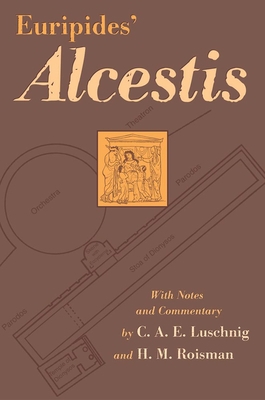
Euripides' Alcestis: Volume 29
Euripides? Alcestis?perhaps the most anthologized Attic drama--is an ideal text for students reading their first play in the original Greek. Literary commentaries and language aids in most editions are too advanced or too elementary for intermediate students of the language,...
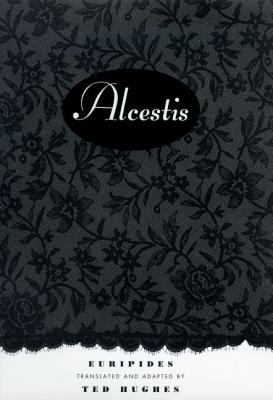
Alcestis: A Play
In the years before his death at age sixty-eight in 1998, Hughes translated several classical works with great energy and ingenuity. His Tales from Ovid was called "one of the great works of our century" (Michael Hofmann, The Times, London), his Oresteia of...
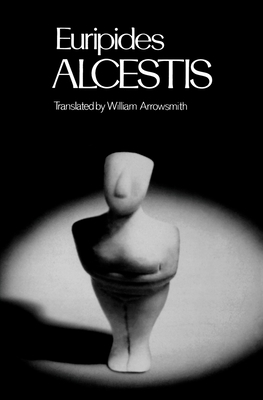
Alcestis
At once a vigorous translation of one of Euripides' most subtle and witty plays, and a wholly fresh interpretation, this version reveals for the first time the extraordinary formal beauty and thematic concentration of the Alcestis. William Arrowsmith, eminent classical scholar,...

Alcestis
Alcestis is an Athenian tragedy by the ancient Greek playwright Euripides. It was first produced at the City Dionysia festival in 438 BCE. Euripides presented it as the final part of a tetralogy of unconnected plays in the competition of tragedies, for which he won second prize;...
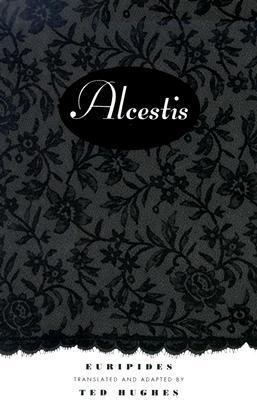
Euripides' Alcestis: A New Translation

Alcestis
Bryn Mawr Commentaries provide clear, concise, accurate, and consistent support for students making the transition from introductory and intermediate texts to the direct experience of ancient Greek and Latin literature. They assume that the student will know the basics of grammar...
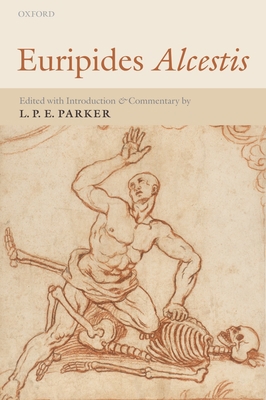
Euripides Alcestis: With Introduction and Comme...
Alcestis is one of Euripides' richest and most brilliant--as well as most controversial--plays. But, apart from D. J. Conacher's student text, no annotated edition in English has appeared for more than fifty years. The present work is designed to aid close reading and to serve...
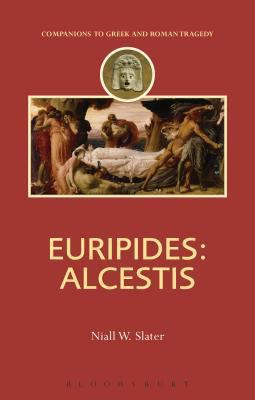
Euripides: Alcestis
In the Alcestis, the title character sacrifices her own life to save that of her husband, Admetus, when he is presented with the opportunity to have someone die in his place. Alcestis compresses within itself both tragedy and its apparent reversal, staging in the process...
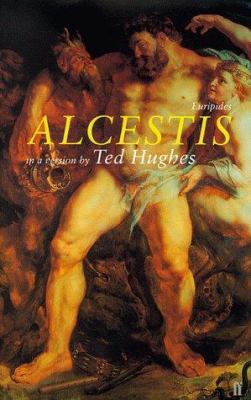
Euripides' Alcestis: A New Version
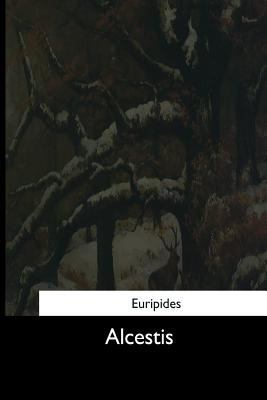
Alcestis
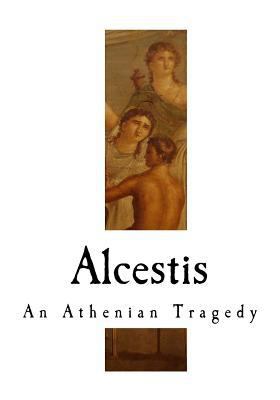
Alcestis: An Athenian Tragedy

Euripides' Alcestis: A New Translation
A masterly translation of one of the greatest of Greek dramas. Their lives are the briefest concession, My concession, a nod of permission. As if I dozed off and dreamed a little. I take a dream-and Admetos calls it his life. -Death in Alcestis In the years before his death at...
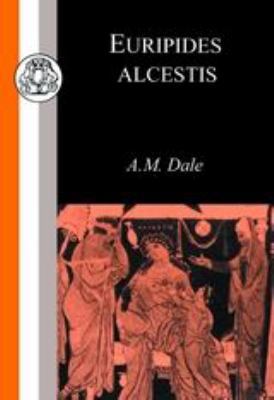
Euripides: Alcestis
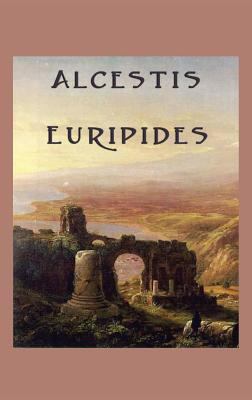
Alcestis
Euripides was one of the three great tragedians of classical Athens, the other two being Aeschylus and Sophocles. Some ancient scholars attributed ninety-five plays to him, of these, eighteen or nineteen have survived complete. Euripides is identified with theatrical innovations...
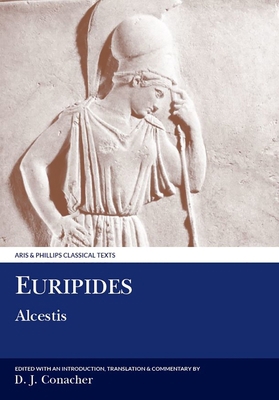
Euripides: Alcestis
The theme of Euripides' Alcestis blends the primitive folk-tale of the self-sacrificing bride, Alcestis, and of Heracles' heroic struggles with the ogre Death, with a morality tale of "virtue rewarded", in this case twice rewarded.
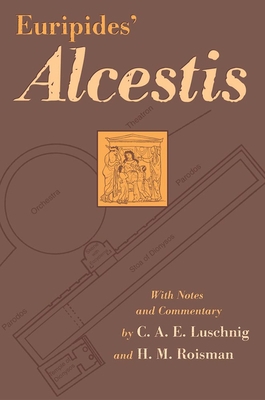
Euripides' Alcestis
Euripides' Alcestis--perhaps the most anthologized Attic drama--is an ideal text for students reading their first play in the original Greek. Literary commentaries and language aids in most editions are too advanced or too elementary for intermediate students of the language,...
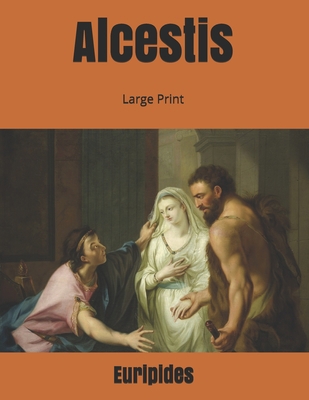
Alcestis: Large Print
Alcestis is an Athenian tragedy by the ancient Greek playwright Euripides. It was first produced at the City Dionysia festival in 438 BC
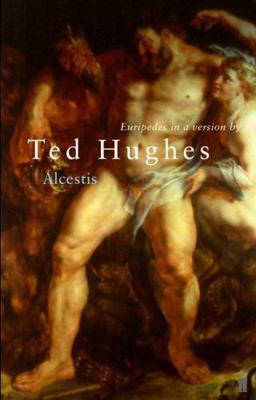
Alcestis: Euripedes in a Version by Ted Hughes
![Alcestis [Greek, Ancient (to 1453)] 3598713215 Book Cover](https://i.thriftbooks.com/api/imagehandler/l/8969C0DF9D64A9B8EDDA7CB025DE6E421802234B.jpeg)
Alcestis [Greek, Ancient (to 1453)]
The Bibliotheca Teubneriana, established in 1849, has evolved into the world's most venerable and extensive series of editions of Greek and Latin literature, ranging from classical to Neo-Latin texts. Some 4-5 new editions are published every year.
A team of renowned...
![Alcestes [Spanish] 1530334179 Book Cover](https://i.thriftbooks.com/api/imagehandler/l/1D8ECEC966496051066F2B9A728D77E34D50A666.jpeg)
Alcestes [Spanish]
Alcestes, es una de las m s tempranas obras supervivientes del dramaturgo griego. A veces se la caracteriza como una obra sat rica y a veces como un melodrama. El drama cuenta c mo Heracles rescata a Alcestes de la muerte, una muerte a la que hab a llegado por capricho de los...
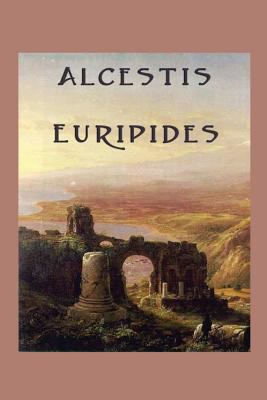
Alcestis
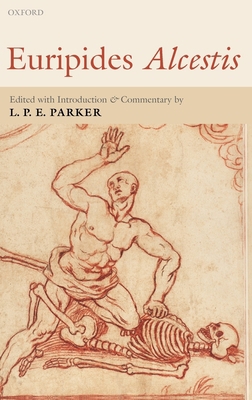
Euripides Alcestis
Alcestis is one of Euripides' richest and most brilliant--as well as most controversial--plays. But, apart from D. J. Conacher's student text, no annotated edition in English has appeared for more than fifty years. The present work is designed to aid close reading and to serve...
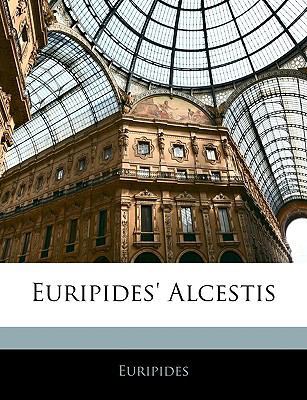
Euripides' Alcestis
This is a reproduction of a book published before 1923. This book may have occasional imperfections such as missing or blurred pages, poor pictures, errant marks, etc. that were either part of the original artifact, or were introduced by the scanning process. We believe this...




